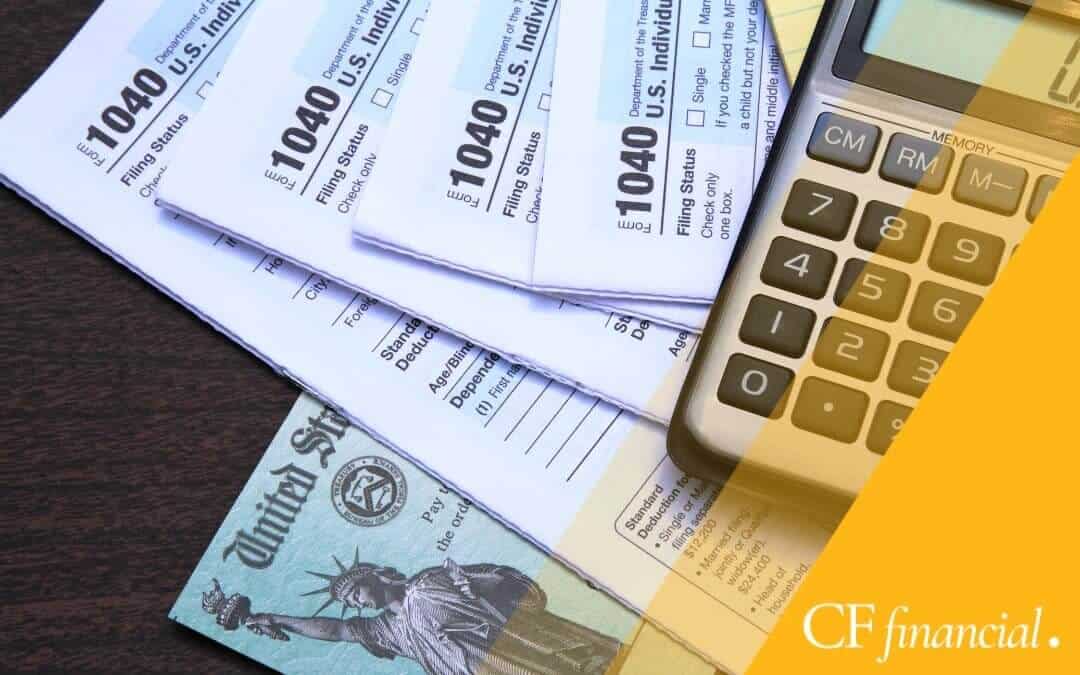After three years of disruption caused by COVID-19, the world is gradually returning to normal, and taxes are not exempt from this. As millions of Americans file their federal income taxes for 2022, they are faced with several pandemic policies that have recently expired. Several special rules were implemented to help people navigate the economic turbulence of 2020 and 2021, but they have now come to an end. Congress has introduced a new set of policies to assist people in coping with inflation.
It is normal for Congress and the IRS to make annual tax adjustments. Still, this year’s changes may feel particularly significant for those who have become accustomed to receiving substantial refunds. Taxpayers should be aware of these policy changes and prepare accordingly. Below are five tax changes that could affect your tax return this year.
1. Income Threshold Changes
Annually, during the fall season, the IRS adjusts its tax brackets and other provisions to account for inflation. Although there has been a gradual decrease in price increases, the past few years have witnessed numerous inflation records being broken. Therefore, the agency has revised the income thresholds determining which tax bracket individuals belong.
It is important to remember that the United States adopts a graduated-rate structure for its taxes. This means that the tax bracket corresponding to an individual’s salary does not determine the total amount of tax they owe on their entire income. Instead, individuals are taxed based on the specific portions of their income that fall into each bracket.
2. Standard Deduction Change
After the enactment of the Tax Cuts and Jobs Act in 2017, most taxpayers have been opting for the standard deduction, which is a fixed amount of income that the IRS permits individuals to exempt from taxes.
In the tax year 2022, the standard deduction for single filers has increased by $400, now at $12,950. Married couples filing jointly have a standard deduction of $25,900, which is an $800 increase from the previous year.
3. No More Federal Stimulus Checks
The federal government issued its final COVID-19 stimulus checks in March 2021 and advised individuals who still need to receive them to claim the recovery rebate credit on their taxes for that year. This process has now been completed.
Regarding your 2022 taxes, the only stimulus checks that require attention are those that your state. After some confusion, the IRS recently announced that most recipients do not need to report relief payments as income. In most states, the rebates were classified as welfare payments or disaster relief funds, and as such, they are not subject to taxation.
4. Child Tax Credit Changes
In 2021, Congress temporarily expanded the child tax credit, enabling families to claim up to $3,600 per child. However, the expansion was not renewed, and the child tax credit has reverted to $2,000 per dependent.
The earned income tax credit and the maximum child and dependent care credit have also decreased. Furthermore, the special $300 charitable deduction extended to taxpayers who did not itemize has expired.
5. Clean Energy Credit Changes
The Inflation Reduction Act signed in August 2022, changed regulations concerning tax credits for environmentally friendly practices. While most of these changes only came into effect in January and will only impact your taxes the following year, a few exceptions apply. The improved residential clean energy credit applies to qualifying projects, such as installing solar panels, completed in 2022. Congress also adjusted the electric vehicle tax credit; vehicles purchased after August must now be assembled in North America to qualify. These tax credits may be beneficial to building owners and architects.
Conclusion
As the world begins to return to normal after the COVID-19 pandemic, taxpayers in the United States are grappling with changes in tax policy. Although the IRS adjusts tax brackets and other provisions annually, this year’s changes are particularly significant. The income threshold and standard deduction have increased, while the federal stimulus checks have ended. Additionally, the child tax credit and clean energy credits have undergone significant changes. Taxpayers should be aware of these alterations and plan accordingly to avoid unexpected tax bills.
CF Financial does not provide tax advice. Tax advice is provide through our affiliate, Calvetti Ferguson. CF Financial and Calvetti Ferguson are separate but related entities.

